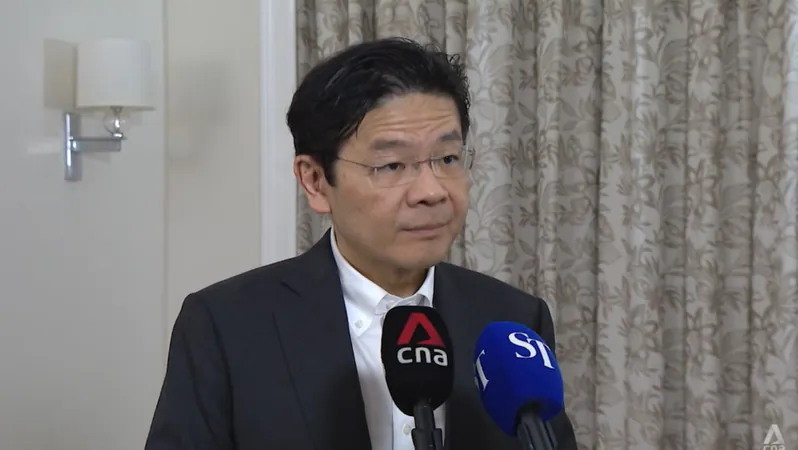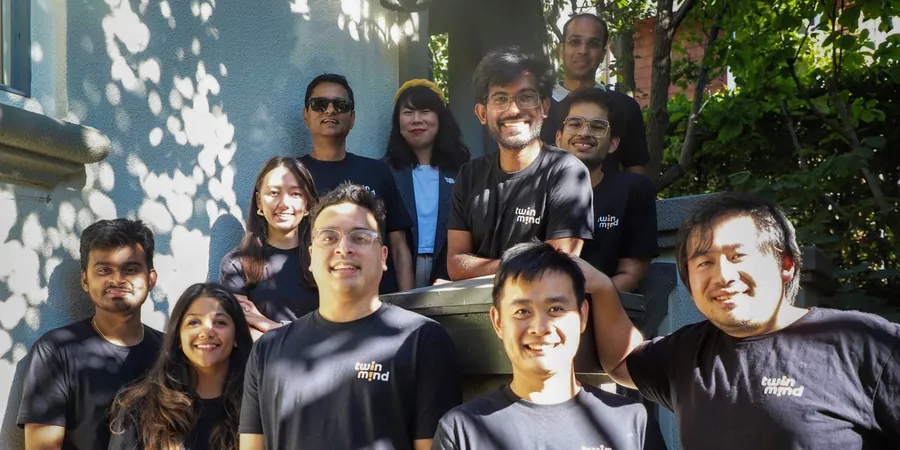
Why Singapore's Role in G20 Summits is Crucial for Global Stability
2024-11-20
Author: Daniel
Introduction
SINGAPORE: At the recently concluded G20 summit in Rio de Janeiro, Singapore's Prime Minister Lawrence Wong emphasized the significance of multilateral discussions, even amidst mounting pressures that challenge global cooperation.
"Having a seat at the table is far better than being sidelined," Wong remarked, invoking the well-known saying: "If you're not at the table, you're on the menu." This statement highlights Singapore’s conviction in participating actively in international platforms, despite its status as a non-member of the G20, which comprises 19 countries along with the European Union and the African Union.
During his visit to Brazil from November 17 to 20, Wong underscored that active participation in forums like the G20 allows Singapore to stay informed about developing initiatives and emerging areas of collaboration. He noted, "Singapore can influence these processes in ways that benefit us, and even if we don’t secure the best outcomes, it’s crucial to remain adaptable to changing global circumstances."
The prime minister also took advantage of this summit to foster bilateral relations, stating, "Meeting with leaders from diverse countries provides valuable opportunities to assess and strengthen our international ties."
The Pressures on Multilateralism
Wong acknowledged the challenges facing a rules-based multilateral system, stating, "Support for multilateralism appears to be waning, but it is essential for Singapore’s interests. We must continue to collaborate with like-minded nations to sustain the multilateral trading system."
He pointed out the reconfiguration of global trade flows as countries shift towards trading with allies to reduce their vulnerabilities. "This isn't a period of deglobalization but rather a reglobalization where trade may increasingly take on a regional character," Wong explained.
ASEAN’s Role in Regional Stability
Stressing the importance of the Association of Southeast Asian Nations (ASEAN), Wong said efforts to enhance regional cooperation in areas such as digital and green connectivity, power generation, and payment systems are vital. "ASEAN must become more competitive and relevant, forging linkages with other regions as we adapt to changed trade dynamics," he added.
In recent strategic moves, Singapore has fortified ties with Germany and France, upgrading relationships to strategic partnerships to boost cooperation across various sectors. Wong emphasized, "We aim to cultivate relationships with countries of all sizes, guided by mutual interests and cooperation opportunities."
Engaging with Major Powers
Both Germany and France have taken a pragmatic approach towards engaging with China, aiming to maintain independence from U.S. influences. This aligns with Singapore's desire for a balanced regional dynamic, where all major powers engage collaboratively rather than competitively.
Wong stated, "For Southeast Asia to thrive, it is imperative that we foster an open environment that invites participation from all key players, ultimately reducing conflict risks while enhancing regional stability and prosperity."
Takeaway: The Future of Multilateral Engagement
In a world where geopolitical tensions are rising and economic interdependencies are shifting, Wong’s remarks serve as a salient reminder of the importance of dialogue and constructive engagement. As nations recalibrate their relationships, Singapore's proactive participation in forums like the G20 will be vital in shaping a more stable and inclusive global community.

 Brasil (PT)
Brasil (PT)
 Canada (EN)
Canada (EN)
 Chile (ES)
Chile (ES)
 España (ES)
España (ES)
 France (FR)
France (FR)
 Hong Kong (EN)
Hong Kong (EN)
 Italia (IT)
Italia (IT)
 日本 (JA)
日本 (JA)
 Magyarország (HU)
Magyarország (HU)
 Norge (NO)
Norge (NO)
 Polska (PL)
Polska (PL)
 Schweiz (DE)
Schweiz (DE)
 Singapore (EN)
Singapore (EN)
 Sverige (SV)
Sverige (SV)
 Suomi (FI)
Suomi (FI)
 Türkiye (TR)
Türkiye (TR)